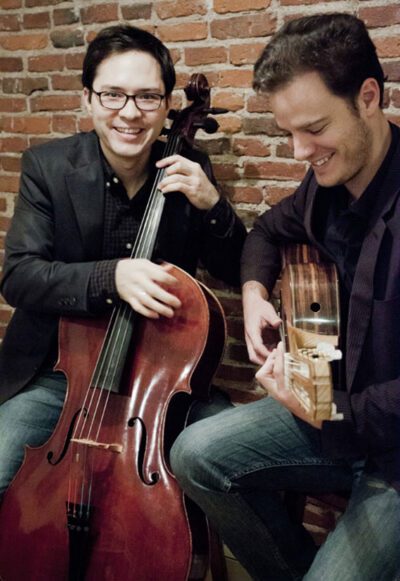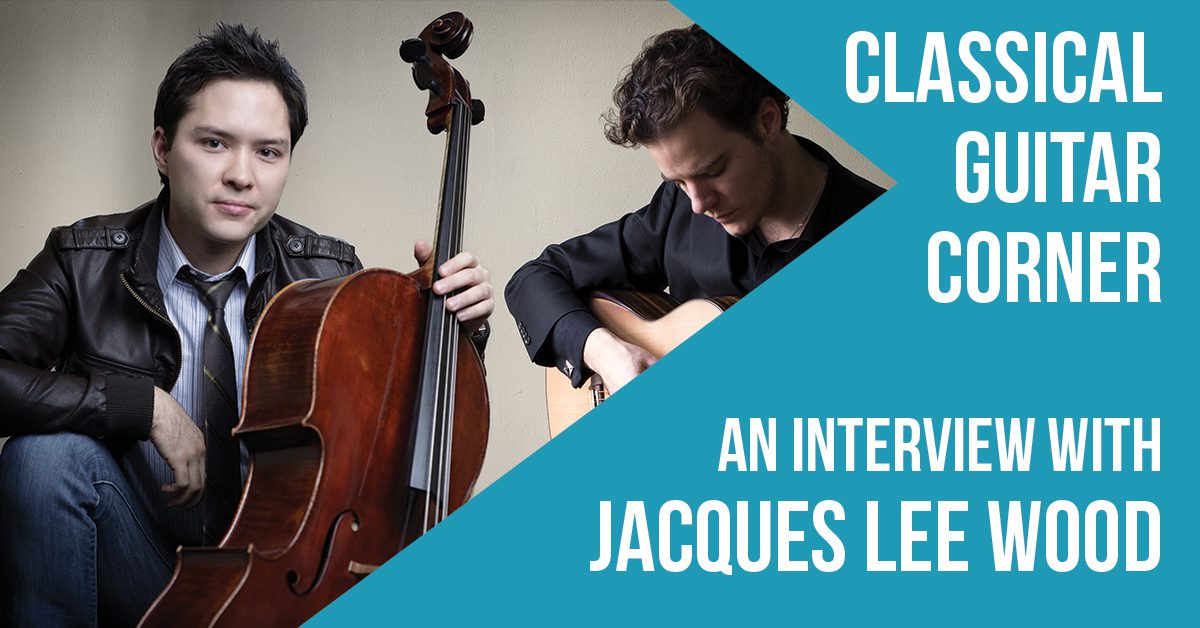Podcast: Play in new window | Download
Subscribe: Apple Podcasts | RSS
In this episode, Simon sits down with cellist Dr. Jacques Lee Wood to discuss J. S. Bach’s Cello Suites. This is a  fascinating discussion focusing on the importance of quality of voice, dynamics, Baroque style versus a flatter modern style of playing, and much, much more.
fascinating discussion focusing on the importance of quality of voice, dynamics, Baroque style versus a flatter modern style of playing, and much, much more.
J. S. Bach’s Six Suites for Unaccompanied Cello were likely written around the same time he wrote his sonatas and partitas for the unaccompanied violin. However, no manuscript exists in Bach’s own hand so many details about the suites come from various manuscripts, including one important manuscript by his wife, Anna Magdalena. In this episode Jacques walks through passages from several of the suites, especially Suite no. 1 (in G Major) and Suite no. 3 (in C Major).
As a bonus for listeners is a superb recording of Simon’s arrangement of “L’Heure Exquisse” by Reynaldo Hahn for guitar and cello, performed by Simon and Jacques. This is a touching piece that has profound personal meaning for Simon and one I think you’ll all enjoy.
Dr. Jacques Lee Wood (DMA, Yale University) is an in-demand teacher and performer located in Boston, Massachusetts in the United States. Jacques performs in many chamber groups, including Antico Modern, a period chamber ensemble that commissions new works for period instruments, and StringLab, a duo with Simon Powis, and is a guest artist in many music festivals and venues all over the world. He is also a principal player with the Grammy-nominated Trinity Baroque Orchestra, Bachsolisten Seoul, the American Baroque Orchestra. You’ll also hear Jacques playing with the NYC-based modern bluegrass group Cathedral Parkway, playing mandolin, cello, and banjo (of which Simon is also a founding member).


I loved this podcast. I would love to hear more of these type of podcasts that are analysis of famous pieces. One of your older podcasts where you analyzed the Rossini operas and your playing if it was also great. I also think Simon, that you should bring your mom on the podcast. :-). Make it a podcast about the perspective of a parent of a musician if she’s not a musician herself. Hehehe
Thank you for a great podcast. I was fascinated by this one perhaps especially because I am so familiar with Bach’s first suite for cello.
I also love cello music!
Those general concepts to keep in mind when playing this music will be very useful.
Thanks, Simon, for the stunning duet and very interesting discussion. I sent the link to my son who is interested in cello. Maybe some day…!
-Jeff
Simon,
I listened to this podcast with fascination. It was very interesting. It also raised a few questions that I would like to ask…
Relative to old style/new style (but with guitar pieces):
When I first learned the Carcassi Etudes I used a book with fingerings by Miguel Llobet. As far as I can tell, this book is no longer even in print. When I compare the versions of pieces in your Level 3 book to the old Llobet book there are some differences, usually minor, but differences. How much of this is dependent on the fact that tastes change? Do fingerings for pieces like this evolve with the times?
Relative to “Etudes”:
When describing playing several of the Bach pieces, Dr. Wood uses the phrase “just an etude,” in a somewhat disparaging context. I had never heard this before and, as someone knee deep in a variety of etudes, I am wondering if there is some further reading you could recommend to dive a bit deeper into this.
Thanks for a very thought-provoking podcast.
Richard
Hi Richard,
I do think indeed that fingerings evolve. Take some famous examples from Segovia’s masterful editions. He had a particular way of fingering that fit his own playing style and interpretation, but it also fit a particular time and cultural heritage. Many people have respectfully taken a different approach with some of the famous Segovia repertoire and would choose their own fingerings that divert heavily from Segovia’s (and perhaps from those other giants of his time and before his time like Llobet and Tarrega).
I won’t speak for Jacques on that comment but I think what he meant was not to disparage etudes necessarily, but to call into question the approach that makes Bach’s music into more of a technical exercise with one dynamic and not paying special attention to phrases or the variety of dance structure, and so on. I hope that helps explain that comment a bit better…but again, I can’t speak for Jacques here!
Thanks for the comment, Richard.
Peace,
Dave B (CGC team)
Dave,
Thank you. I sometimes wonder about how styles change. I can hear it by dipping into Spotify and listening to recordings made in the 50s and 60s and comparing them to the same pieces played in more recent recordings. Obviously there are differences because of the performer, but there are also trends that seem to track across decades. I had never thought of this as applying to things like fingerings until I listened to this podcast and some of what Dr. Wood had said.
Cheers,
RIchard
Excellent discussion of Bach cello suites. Very helpful! Reminded me of the session with Koonce — also excellent.
Suggestion: can you find a lutenist to discuss the lute suites? And going down that road: how about a podcast devoted to just the Chaconne?